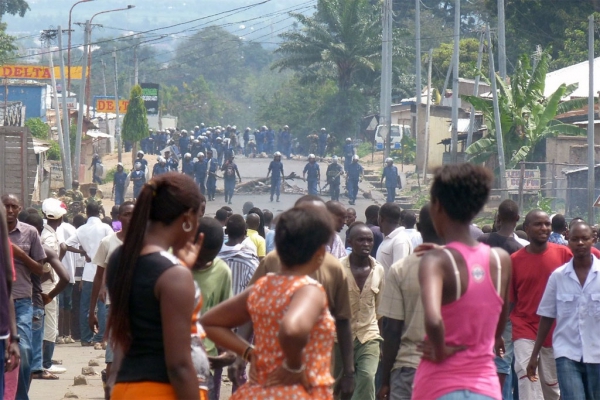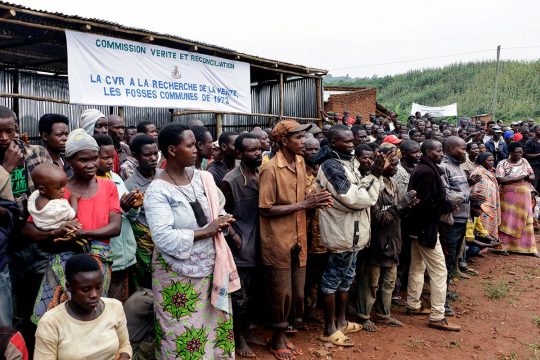Numerous recent warnings on violence in Burundi might have led one to expect a strong response from the UN Security Council. Some permanent Council members had even said the current climate in Burundi is reminiscent of neighbouring Rwanda in the run-up to the 1994 genocide.
An initial text drafted by France included sanctions against those responsible for violence in Burundi. Independent observers such as the International Federation of Human Rights (FIDH) had also called for this. “The gravity of the situation requires urgent, coordinated action by the international community,” FIDH Vice-President Dismas Kitenge said in an interview with JusticeInfo.Net. “It is important to condemn abuses and incitement to violence, but now it is also time to act. Sanctions need to be put in place.”
Resolution voted in less than a minute
After three days of discussions, the text adopted by the Security Council on Thursday was heavily watered down. It was adopted unanimously in less than a minute and contained no sanctions, which were opposed by Russia and African members of the Security Council.
In this Resolution 2248, the Security Council calls on the Burundian government and all parties to reject any kind of violence and refrain from “any action that would threaten peace and stability in the country”. It also says the authorities in Bujumbura must “respect, protect and guarantee all human rights and fundamental freedoms for all”, in line with the country’s international obligations.
Strongly condemning human rights violations committed by both security forces and militia, the Security Council calls on the government to adhere to the rule of law, “undertake transparent accountability for acts of violence” and cooperate fully with the Office of the UN High Commissioner for Human Rights.
Bujumbura must also cooperate with the East African Community (EAC)-led mediation endorsed by the African Union to convene “immediately” a real, inclusive dialogue with all peaceful stakeholders inside and outside the country “in order to find a consensual and nationally owned solution to the current crisis”.
Inclusive dialogue
The Resolution stressed the Council’s “intention to consider additional measures against all Burundian actors whose actions and statements contribute to the perpetuation of violence and impede the search for a peaceful solution”.
In the Resolution’s introduction, the Council notes the African Union decision to impose sanctions against any such parties and reminds Burundi, which is a States Party to the Statute of Rome (founding document of the International Criminal Court) that it has obligations to fight impunity for crimes falling within ICC jurisdiction.
The Council members also welcome a decision by the UN Secretary General to appoint a Special Advisor for conflict prevention, who is to coordinate UN action and work with all parties in Burundi to get inclusive talks and a peaceful resolution of the conflict.
The Secretary General has 15 days to present the Council with “options on the future presence of the United Nations in Burundi”.
According to sources at the UN Department of Peacekeeping Operations, there are plans afoot to move to Burundi a contingent of the UN force in neighbouring Democratic Republic of Congo (DRC). However, that would require the consent of the Burundian authorities or a Security Council Resolution imposing the contingent, neither of which looks likely for the moment.
“We can’t say we didn’t know”
As the Security Council debate on Burundi opened on Monday, UN High Commissioner for Human Rights Zeid Ra'ad Al Hussein stressed the risk of violence escalating. He pointed to the growing number of extrajudicial killings in recent months, credible allegations of torture and the hundreds of thousands of displaced people and refugees fleeing the violence. “I believe that Member States, and this Council, can intervene effectively to prevent the repetition of past horrors,” he told Council members.
The UN Secretary General’s Special Advisor on the Prevention of Genocide, Adama Dieng, issued a warning. "Given the clear information we have about the gravity of the situation, we will not be able to claim, if a full scale conflict erupts, that ‘we didn’t know’,” he said. “The international community has a responsibility to protect Burundians and to prevent the commission of atrocity crimes."







